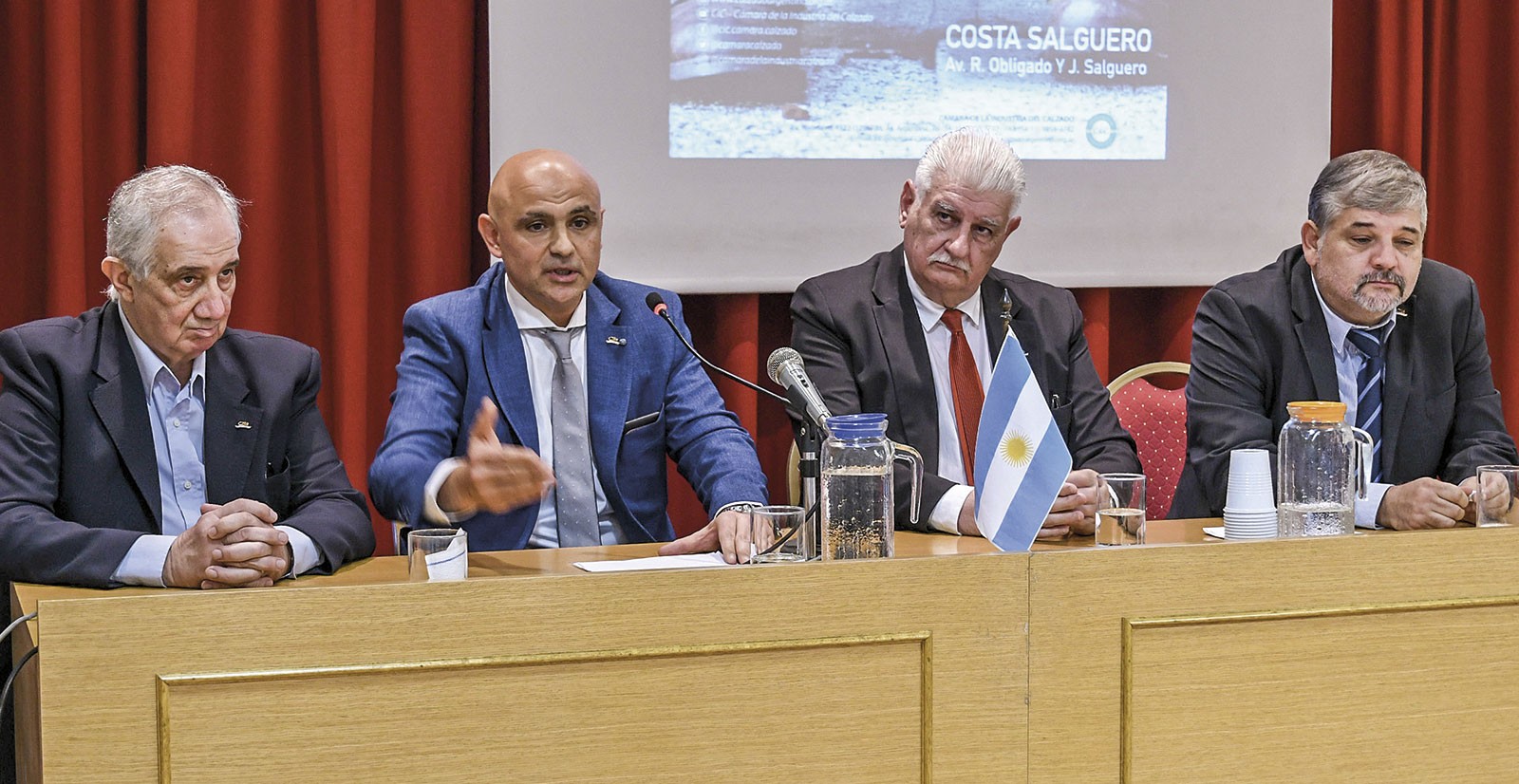


Son of José De Vito, an Italian immigrant who arrived in Argentina in 1954, Fernando De Vito was elected in October 2019 as the new president of the Chamber of the Footwear Industry of Buenos Aires.
With 51 years, he accompanied the different stages of his family business -Calzados FERLI- and had the opportunity to know deeply the trade of making shoes.
“In 1984 I took the course of modeling, and shoe technician at the San Crispín Institute, and at 23 I graduated from Public Accountant at the Buenos Aires University -UBA-.
With this training I continued in the factory, and with the experience of my father, we managed to carry out a sustained growth that allowed us to expand the manufacturing area, implementing various building, administrative, technological and productive reforms that have consolidated us in the market”.
“The Chamber does not make politics, the Chamber and the sector depend on national politics and within that framework we must ensure the interests of our associates. The crisis of recent years has been because our industry is very sensitive, has an intensive workforce and was directly affected by the drop in consumption, tax pressure and inflation. If the economy is normalized, our sector will immediately recover.”
“I think it comes a time of greater demand for labor, depending on the economic policy measures of the new government. The question is to maintain control over imports and a relatively high exchange rate, equated with inflation, with witch naturally we will be more competitive. It is proven that the increase in tax pressure, the depression of consumption, high interest rates, inflation and exchange rate volatility are factors that attempt against competitiveness.”
“The ordering of the macroeconomy is fundamental for the competitiveness of a country. For this, it is essential that monetary, exchange and fiscal policy work in coordination and jointly. Monetary policy has to do with inflation and interest rates, with an independent Central Bank that manages the monetary issue. Exchange policy means that we must have an exchange rate according to the competitiveness of the country, and fiscal policy is the one that the Ministry of Economy must manage by implementing what ‘we cannot spend more than it enters’. If this happens, the State must compulsorily raise money and consequently must increase the tax pressure. This is what has happened historically in our country and we hope that this opportunity will be reversed.”
Regarding the international market, he pointed out that “although free trade is declared there are numerous para-tariff measures that modify this concept. In the case of footwear imports in Argentina we have to implement an intelligent opening: the shoe that we need or don't manufacture must enter, not an indiscriminate income. I think that if we have an orderly macroeconomics, with a real exchange rate, we will naturally have containment barriers. Some of this has happened with the decrease in purchases to Brazil, where the exchange rate set high prices for Brazilian products, with the aggravation of the low reserves of the Central Bank that hindered currency transfers abroad”.

“In the immediate, depending on the guidelines of the new National Government regarding economic policy, we aspire to recover the internal market and grow in productivity, and as long as we can project the long term, we will continue with the plans to bring the offer of Argentine footwear to the international market. First, we will do it in the region, as we did the previous year with trade missions to Chile, Peru and Colombia, and then we will take our offer to more distant markets. In February 2020, again a group of Argentine footwear manufacturers will participate with their own stand at MICAM, the largest international fair in the sector to be held in Milan, Italy, with the concurrence of buyers from all over the world.”
“We are aware that in the face of a change in market conditions, we will need sufficient skilled labor, which in recent years saw its offer diminished due to the decline in activity. In this regard, we want to activate the training sector through CEFOTECA, the Technical Training Center in Footwear that we share with the INTI, in order to promote a greater interest in the specialty and have a good availability of skilled labor”.
